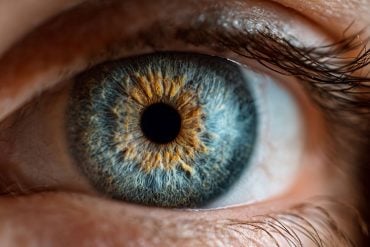Summary: A new analysis of the PANDA clinical trial reveals that sertraline, one of the most prescribed antidepressants, improves key emotional symptoms of depression—such as sadness, self-loathing, and suicidal thoughts—within just two weeks of treatment. Using network analysis to assess individual symptoms, researchers found that the drug also eased anxiety early on, while somatic effects like fatigue and low libido appeared but later stabilized.
The findings offer a more nuanced understanding of how antidepressants affect specific emotional versus physical symptoms. This study suggests patients may begin to experience meaningful relief earlier than previously believed.
Key Facts
- Early Emotional Relief: Sertraline improved mood, anxiety, and suicidal thoughts within two weeks.
- Side Effects Stabilize: Physical side effects such as low libido and fatigue plateaued after six weeks.
- Symptom-Level Insight: Network analysis showed that antidepressants act differently across emotional and somatic symptoms.
Source: UCL
One of the most common antidepressants, sertraline, contributes to a modest improvement in core depression and anxiety symptoms, including low mood, within two weeks, finds a new analysis of a major clinical trial led by UCL researchers.
The study, published in Nature Mental Health, analysed the findings of the PANDA trial, which first published results in 2019 and found that sertraline may have an earlier impact on anxiety than depressive symptoms.
Researchers have now conducted a network analysis of the results, which is an innovative statistical method that allowed them to explore how specific symptoms respond to treatment.
The analysis revealed an improvement in symptoms such as low mood and suicidal thinking within two weeks of taking sertraline, while side effects of the drug led to symptoms such as low libido, low appetite, and tiredness. These side effects can also be symptoms of depression.
The researchers propose that the effect on all depressive symptoms put together in the initial analysis obscured the benefits of the antidepressants on some of the core depressive symptoms.
In the new analysis, the early improvements from sertraline were found to be on feelings of sadness, self-loathing, restlessness, and suicidal thoughts.
The PANDA trial was a randomised controlled trial testing the effects of sertraline on people with depressive symptoms, including a wide range of patients in England whose symptoms ranged from mild to moderate.
In a paper published in The Lancet Psychiatry in 2019, scientists reported that within six weeks, sertraline improved anxiety symptoms and people reported an overall improvement in their mental health, but depressive symptoms did not meaningfully improve until participants had been taking the drug for 12 weeks.
The new analysis, using data from 571 participants of the trial (those who had complete data for each symptom), suggests that sertraline improves some core depressive symptoms more quickly than previously believed.
The somatic (physical) symptoms that worsened, including libido and poor sleep, can be seen as side effects of antidepressants, but they are also common symptoms of depression, which can complicate interpretation of treatment effects.
Lead author Dr Giulia Piazza (UCL Psychiatry and UCL Psychology & Language Sciences) said: “We have now painted a more complex picture of sertraline’s effects on the different symptoms of depression.
“Instead of thinking of depression and anxiety as each being a single, uniform condition, network analysis considers that they’re each a constellation of symptoms, that can appear in different combinations for different people. These symptoms influence each other over time; for example, poor sleep can lead to problems with concentration, which may then impact self-esteem.
“Our analysis was borne out of this theoretical approach, in order to gain deeper insights and add nuance to the results of the PANDA trial.”
The researchers found that sertraline contributed to improvements in anxiety symptoms and in the emotional symptoms of depression within two weeks, and a modest worsening of somatic symptoms. The effect on somatic symptoms plateaued after six weeks, while the improvements in emotional symptoms and anxiety continued to improve from six weeks to 12 weeks.
Dr Piazza added: “It appears that the adverse effects on somatic symptoms like poor sleep and libido may stabilise after six weeks, which is then counteracted by continued improvements in emotional symptoms, the core symptoms of depression.”
Antidepressants are the standard pharmaceutical treatment for both depression and generalised anxiety disorder. Sertraline is a selective serotonin reuptake inhibitor (SSRI), the most common class of antidepressants.
Co-author Professor Glyn Lewis (UCL Psychiatry), who led the PANDA trial, said: “Our findings provide robust evidence that continues to support the prescription of sertraline for people experiencing depressive and anxiety symptoms. These findings will help patients and clinicians to make more informed decisions about treatment.”
Co-senior author Professor Jean-Baptiste Pingault (UCL Psychology & Language Sciences) said: “We found that the beneficial effects of sertraline can be detected very early on, as soon as two weeks after people start taking the antidepressant.
“Beyond this study, our results highlight the importance of considering symptom-level effects when developing novel drugs and evaluating existing drugs in psychiatry, and how this can help us to understand how these drugs work and how they can help patients.”
Funding: This study was supported by Wellcome, and the PANDA trial was funded by the National Institute for Health Research (NIHR) and the NIHR University College London Hospitals Biomedical Research Centre.
Key Questions Answered:
A: Emotional symptoms like sadness and anxiety improved within two weeks, earlier than previously thought.
A: Participants experienced somatic effects such as tiredness, low libido, and sleep disturbances, which later stabilized.
A: It highlights how antidepressants may act unevenly across symptoms, offering insight into tailored treatment strategies.
About this antidepressant research news
Author: Chris Lane
Source: UCL
Contact: Chris Lane – UCL
Image: The image is credited to Neuroscience News
Original Research: Open access.
“The effect of sertraline on networks of mood and anxiety symptoms: secondary analysis of the PANDA randomized controlled trial” by Giulia Piazza et al. Nature Mental Health
Abstract
The effect of sertraline on networks of mood and anxiety symptoms: secondary analysis of the PANDA randomized controlled trial
Depression consists of heterogeneous symptoms that can occur in hundreds of possible combinations. However, intervention studies commonly operationalize depression as a homogeneous condition.
Here we adopt a symptom-level approach to test the effects of the selective serotonin reuptake inhibitor sertraline on depression and anxiety symptoms and to test their associations.
Using data from the PANDA randomized controlled trial, we use network models to estimate the effects of sertraline at different time points (contemporaneous networks at 2, 6 and 12 weeks) and across time (temporally lagged networks).
Results show that sertraline has beneficial effects on core depression and anxiety symptoms as early as after 2 weeks of treatment, counteracted by detrimental effects on somatic symptoms of depression. This intricate pattern of treatment effects is typically masked when measuring depression on a single dimension.
Focusing on individual symptoms of depression and anxiety may shed light on the nature, effectiveness and timing of antidepressant action.







